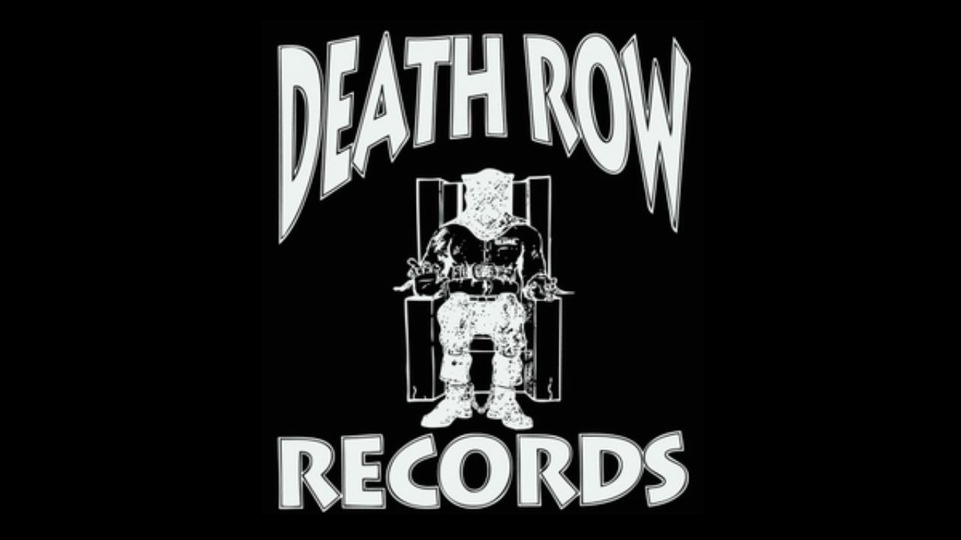In the gritty underbelly of West Coast hip-hop, few names evoke as much legend, controversy, and raw innovation as Death Row Records. From launching the careers of icons like Dr. Dre, Snoop Dogg, and Tupac Shakur to becoming synonymous with the explosive East Coast-West Coast rivalry of the 1990s, Death Row Records has been more than a label—it’s a cultural phenomenon. But amid the platinum plaques and tragic headlines, one question persists in the minds of hip-hop enthusiasts and industry watchers alike: Who owns Death Row Records today? As of 2025, the answer is clear—rap mogul Snoop Dogg holds the reins, steering the label toward a surprising revival after decades of turmoil. This ownership shift marks a full-circle moment for Snoop, who rose to stardom under Death Row’s banner, and it underscores the label’s enduring legacy in shaping gangsta rap and beyond. In this comprehensive guide, we’ll dive deep into the ownership history of Death Row Records, exploring its founding, meteoric rise, dramatic falls, and phoenix-like resurgence. Whether you’re a longtime fan tracing the label’s blood-soaked timeline or a newcomer curious about its current trajectory, this exploration reveals how Death Row evolved from a rogue startup to a revived powerhouse.
The Founding of Death Row Records: Seeds of a Revolution (1991–1992)
Death Row Records wasn’t born in a boardroom; it emerged from the frustrations of artists tired of exploitative contracts and unequal profit-sharing in the cutthroat world of early ’90s hip-hop. Founded in 1991 by a cadre of visionaries—The D.O.C. (Tracy Lynn Curry), Dr. Dre (Andre Young), Suge Knight (Marion Hugh Knight Jr.), Dick Griffey, and Michael “Harry-O” Harris—the label was a bold rebellion against the status quo. At its inception, the group toyed with names like Future Shock and Def Row before settling on Death Row, a nod to the high-stakes gamble they were taking. Harry-O, already incarcerated on drug and attempted murder charges, funneled seed money through his Godfather Entertainment company, while Suge Knight’s intimidating reputation secured additional funding—most notoriously from pop-rap sensation Vanilla Ice, whose royalties from “Ice Ice Baby” were allegedly coerced into supporting the fledgling venture.
The label’s early offices hummed with creative energy in Los Angeles’ Westwood neighborhood, but financial backing was crucial. Enter Jimmy Iovine of Interscope Records, who inked a groundbreaking $10 million distribution deal in 1992. This partnership provided the capital to record and promote releases, allowing Death Row to bypass major labels wary of its unapologetic edge. Sony, for instance, passed due to the label’s provocative image, but Interscope saw gold in the G-funk sound Dr. Dre was pioneering—a smooth fusion of funk samples, heavy basslines, and unfiltered street narratives.
Death Row’s first breakthrough came with the 1992 soundtrack single “Deep Cover” by Dr. Dre and a then-unknown Snoop Doggy Dogg (Calvin Broadus Jr.). The track’s haunting synths and vivid storytelling catapulted Snoop into the spotlight, setting the stage for the label’s dominance. By year’s end, Dr. Dre’s solo debut The Chronic dropped, selling over 5.7 million copies worldwide and cementing G-funk as the soundtrack of ’90s West Coast culture. Ownership during this era was tightly held by the founders, with Suge Knight emerging as the de facto CEO, his Mob Piru Bloods affiliations adding a layer of menace that both fueled hype and foreshadowed tragedy.
The Golden Era: Platinum Hits and Perilous Feuds (1993–1996)
The mid-1990s were Death Row’s zenith, a period when the label generated over $100 million annually and redefined hip-hop’s commercial landscape. Snoop Dogg’s 1993 debut Doggystyle debuted at No. 1 on the Billboard 200, going quadruple platinum and spawning hits like “Gin and Juice.” Soundtracks for films like Above the Rim (1994) and Murder Was the Case (1994) followed suit, both achieving multi-platinum status and introducing acts like Tha Dogg Pound and The Lady of Rage to mainstream audiences.
The signing of Tupac Shakur in October 1995 supercharged Death Row’s momentum—and its volatility. After posting $1.4 million bail for the incarcerated rapper, Suge Knight inked Tupac to a lucrative deal, leading to the diamond-certified All Eyez on Me in 1996. But glory came laced with violence. The label’s orbit intersected with gang rivalries, culminating in the infamous MGM Grand brawl on September 7, 1996, involving Suge, Tupac, and Crips member Orlando Anderson. Hours later, Tupac was fatally shot in a drive-by, dying six days later at age 25. The unsolved murder, tied to broader East-West feuds, cast a long shadow over Death Row.
Internally, cracks formed. Dr. Dre departed in March 1996 to launch Aftermath Entertainment, citing Knight’s tyrannical management and violent tendencies. Tupac’s posthumous The Don Killuminati: The 7 Day Theory still topped charts, but the exodus continued: Snoop Dogg left amid royalty disputes, Nate Dogg and Kurupt followed, and the label’s roster thinned. Ownership remained with Knight and the original stakeholders, but legal battles loomed, including suits from co-founders Griffey and The D.O.C. alleging Knight had secretly diluted their shares.
Decline and Bankruptcy: From Empire to Ruin (1997–2006)
Suge Knight’s September 1997 sentencing to nine years for probation violation—stemming from assault charges—proved catastrophic. Interscope severed ties, leaving Death Row adrift. Posthumous Tupac releases like Until the End of Time (2001) and Better Dayz (2002) propped up revenues, but flops like Suge Knight Represents: Chronic 2000 (1999) eroded credibility. Knight’s release in 2001 did little to stem the tide; lawsuits piled up, including Daz Dillinger’s $1 million royalty claim.
By 2006, the label teetered on collapse. On April 4, federal bankruptcy filings revealed staggering debts: $107 million to creditor Lydia Harris (Harry-O’s ex-wife), $6.9 million to the IRS, and millions more to distributors. Assets—including the infamous “Death Row electric chair” prop—were auctioned off. Knight lost control, and trustees oversaw the remnants. This marked the end of the founders’ era, with ownership fracturing amid fraud allegations and unpaid royalties.
Post-Bankruptcy Transitions: A Parade of Corporate Owners (2009–2021)
The bankruptcy auction in January 2009 fetched $18 million from WIDEawake Entertainment Group, led by Lara Lavi, who aimed to mine the vault for unreleased gems like Snoop’s Death Row: The Lost Sessions Vol. 1 (2009). But WIDEawake’s parent company imploded in a 2012 Ponzi scheme scandal, forcing another sale to Entertainment One (eOne) for an undisclosed sum. eOne, a Canadian media conglomerate, treated Death Row as a catalog asset, releasing compilations but shying from new signings.
Corporate chess continued: In August 2019, toy giant Hasbro acquired eOne for $4 billion, inadvertently inheriting Death Row amid its entertainment pivot. By April 2021, Hasbro offloaded eOne’s music division to Blackstone Group’s MNRK Music Group for $385 million, positioning Death Row under private equity oversight. These handoffs diluted the label’s street cred, turning it into a dormant relic rather than a vibrant force.
Snoop Dogg’s Homecoming: Acquisition and Revival (2022–Present)
Enter Snoop Dogg, the prodigal son. On February 9, 2022, the Long Beach legend announced his purchase of Death Row’s trademarks from MNRK, fulfilling a lifelong dream to reclaim his roots. The deal, valued undisclosed but strategic, initially focused on the brand and select catalog rights—excluding Dr. Dre and Tupac masters, which reverted to Interscope. Snoop wasted no time: His album BODR (Bacc on Death Row), released February 11, 2022, marked his first project under the imprint in 26 years.
Controversy swirled early. Snoop claimed full catalog acquisition in March 2022, but Dre’s team clarified otherwise, leading to The Chronic‘s streaming return in 2023. Undeterred, Snoop inked fresh talent like Merkules, Jane Handcock, and October London, launching a streaming service in April 2022 to boost artist royalties. By December 2022, he sold a catalog stake to Gamma for expanded distribution.
As of 2025, Snoop’s stewardship has breathed new life into Death Row. Recent releases include Tha Dogg Pound’s W.A.W.G. (We All We Got) (May 2024), October London’s October Nights (October 2024), Snoop’s Missionary (December 2024, peaking at No. 20), Charlie Bereal’s Walk With the Father (January 2025), and Iz It a Crime? (May 2025). Roster standouts like D Smoke, Julian Torres, and revived acts Tha Eastsidaz signal a blend of legacy and innovation. Based in Beverly Hills, the label’s website (deathrowrecords.com) teases more drops, including the Death Row Revue showcase in January 2025. Suge Knight, from prison, has publicly questioned Snoop’s ownership in 2025 interviews, but the transition remains undisputed.
Snoop’s vision emphasizes empowerment: higher royalties, Web3 explorations, and community ties, distancing from Knight’s shadow. This revival isn’t just nostalgic—it’s a blueprint for sustainable hip-hop entrepreneurship in the streaming age.
Legacy and Lessons: Why Death Row Endures
Death Row Records’ ownership saga—from scrappy founders to Snoop’s redemptive arc—mirrors hip-hop’s own evolution: raw ambition clashing with systemic pitfalls, only to rise resilient. At its peak, it democratized West Coast voices, grossing billions in influence if not always revenue. Tragedies like Tupac’s death and Biggie’s alleged ties underscore the human cost, yet the label’s catalog—over 100 million units sold—remains a cornerstone of genre-defining anthems.
For aspiring moguls, Death Row teaches resilience: Bankruptcy didn’t erase its DNA; corporate flips couldn’t silence its roar. Under Snoop, it’s poised for another chapter, potentially bridging old-school grit with modern tech. As hip-hop globalizes, Death Row’s story reminds us that true ownership isn’t just legal—it’s cultural stewardship.
In searching “Death Row Records current owner 2025,” fans uncover not just a transaction, but a testament to longevity. Whether debating Snoop’s full catalog claims or anticipating the next Doggystyle-level hit, one thing’s certain: Death Row Records owns a piece of hip-hop’s soul—and in 2025, Snoop Dogg owns Death Row.
References
- NPR. “Snoop Dogg now owns Death Row Records.” February 9, 2022. https://www.npr.org/2022/02/09/1079761477/snoop-dogg-now-owns-death-row-records
- Black Enterprise. “Suge Knight Questions Snoop Dogg Owning Death Row Records.” March 12, 2025. https://www.blackenterprise.com/suge-knight-snoop-dogg-death-row-records/
- People. “Snoop Dogg ‘Thrilled’ to Be Owner of Death Row Records.” February 10, 2022. https://people.com/music/snoop-dogg-thrilled-to-be-owner-of-death-row-records-label-that-launched-his-career/
- Forbes. “Snoop Dogg And Death Row Records Stars Showcase Talents On Death Row Revue.” January 3, 2025. https://www.forbes.com/sites/cmalone/2025/01/03/snoop-dogg-and-death-row-records-showcase-talents-on-death-row-revue/
- Wikipedia. “Death Row Records.” Accessed October 19, 2025. https://en.wikipedia.org/wiki/Death_Row_Records
- King Ice. “A History of Death Row Records.” August 13, 2024. https://www.kingice.com/blogs/culture/a-history-of-death-row-records
- Timetoast. “Death Row Records Timeline.” Accessed October 19, 2025. https://www.timetoast.com/timelines/death-row-records-timeline

